Discover the profound social impact of pubs as they play a vital role in shaping culture and communities. From fostering social connections to contributing economically, pubs serve as more than just places to drink—they are hubs of cultural exchange and community building. Explore how these establishments influence local identities, support traditions, and adapt to modern needs while maintaining their core values. This article delves into the multifaceted role of pubs, examining their significance across various facets of social life.
Key Takeaways
- Pubs Shape Culture: From historical landmarks to vibrant social spaces, pubs deeply influence local culture and traditions.
- Community Hubs: Pubs foster connections, bringing people together for social interactions and shared experiences.
- Social Interactions: They facilitate gatherings, celebrations, and casual meetups, enhancing community bonds.
- Historical Significance: With roots tracing back centuries, pubs reflect rich cultural heritage and societal values.
- Diverse Offerings: Pubs provide varied experiences, including food, drinks, events, and activities for all ages.
- Adaptation Over Time: Evolving with societal changes, pubs remain relevant by integrating modern tech while preserving their core appeal.
- Cultural Landmarks: Beyond buildings, pubs are symbols of local identity and cherished traditions.
- Seasonal Celebrations: They play a pivotal role in festivals, bringing communities together through shared customs and joy.
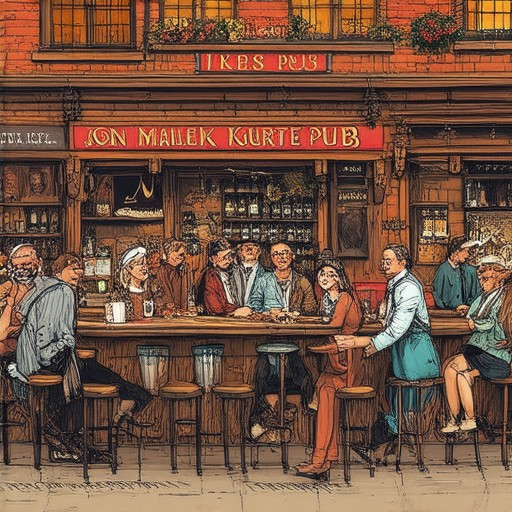
Why Are Pubs Important to the Community?
Pubs are essential to the fabric of many communities, serving as more than just establishments to enjoy a drink. They play a crucial role in social interaction, economic support, and cultural preservation, making them invaluable assets to any neighborhood.
- Fostering Social Connections :
Pubs act as gathering places where people can socialize, share stories, and build relationships. Regulars often form strong bonds over shared experiences, creating a sense of belonging and reducing social isolation. - Economic Contribution :
Beyond their role as social spaces, pubs contribute to the local economy by employing staff, purchasing goods from local suppliers, and attracting foot traffic. This supports small businesses and provides job opportunities within the community. - Cultural Preservation :
Many pubs have historical significance, serving as venues for generations of gatherings. They often host events that celebrate local culture, such as traditional festivals, live music, and storytelling sessions, helping to preserve and promote cultural heritage. - Promoting Social Cohesion :
Pubs bring together diverse groups, from families and friends to different age demographics. By providing a relaxed environment conducive to conversation, they help bridge social divides and foster mutual understanding. - Community Events and Fundraising :
Pubs frequently host events like quizzes, charity nights, and local markets. These gatherings not only strengthen community bonds but also provide a platform for raising funds for worthwhile causes. - Personal Well-being :
For many, pubs offer an escape from daily stress and a chance to connect with others. The camaraderie and conversations that happen there contribute positively to mental well-being. - Tourist Attraction :
Pubs often attract tourists, offering them a glimpse into local culture. This influx of visitors benefits the community by boosting the tourism industry and introducing outsiders to the area’s vibrant social scene. - Public Health Initiatives :
Pubs can play a role in promoting responsible drinking by encouraging moderation and providing a safe environment. Some pubs collaborate with local organizations to address public health concerns, further highlighting their impact.
In essence, pubs are more than just places to drink—they are hubs of social interaction, economic activity, and cultural exchange, making them indispensable to the communities they serve.
Benefits of Going to the Pub
Going to the pub offers numerous benefits that make it a worthwhile experience:
- Social Connection: Pubs provide a casual environment where individuals can meet new people or reconnect with old friends. This fosters a sense of community and belonging.
- Mental Health Support: Engaging in social activities like drinking in a pub can help alleviate feelings of loneliness or stress, offering a break from daily routine and providing mental relief.
- Enjoyment of Drinks: Pubs often offer a variety of beverages, allowing guests to explore different drinks and find their favorites. This enjoyment can enhance the overall experience.
- Cultural Experience: Each pub has its own unique atmosphere and cultural significance, reflecting the history and traditions of its location. Visiting a pub can provide insight into local culture and heritage.
- Relaxation: The ambiance of a pub typically promotes relaxation, making it an ideal spot to unwind after a busy day or before heading out for the night.
Dufferin Arms, a blog dedicated to pub culture, highlights the timeless appeal of pubs and their role in fostering community connections. Explore their articles to delve deeper into the legacy and charm of pubs worldwide.
For more information on the benefits of visiting pubs and to discover the rich history behind them, visit Dufferin Arms .
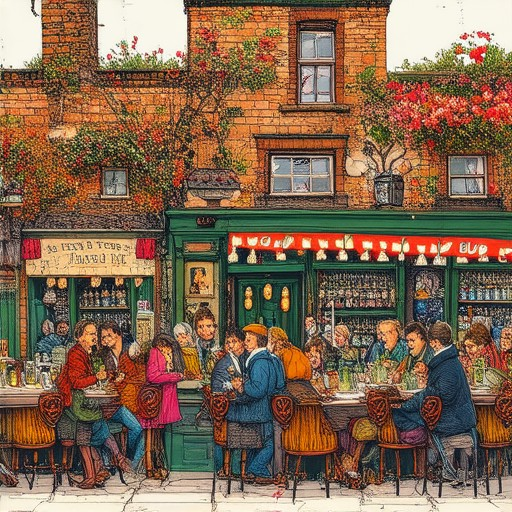
What is the Main Purpose of a Pub?
A pub’s primary function is to provide a social space where individuals can gather to enjoy beverages, typically alcohol, and often share meals. Pubs serve as hubs for relaxation, socializing, and recreation, often featuring a welcoming atmosphere that encourages interaction. They may also host events like sports viewings, live music, or themed nights to enhance the entertainment experience.
What Do Pubs Offer?
Pubs generally provide: – Alcoholic and non-alcoholic beverages – Food options, ranging from light snacks to full meals – A venue for social gatherings and celebrations – Entertainment through sports broadcasts, live performances, or trivia nights
Setting Up a Pub
If you’re considering opening a pub, several factors come into play:- Location : Choose a spot with high foot traffic and suitable amenities.- Design : Opt for a layout that reflects the pub’s theme, whether it’s rustic, modern, or themed.- Licensing : Obtain the necessary permits and licenses, including a liquor license.- Suppliers : Partner with reputable alcohol distributors to ensure quality and availability.
Cultural Significance
Pubs hold cultural importance as community gathering spots. They often reflect local traditions and serve as venues for celebrating milestones. Their role extends beyond just serving drinks, contributing to social cohesion and local economies.
By focusing on these elements, a pub can become more than just a bar—it becomes a vibrant part of the community, offering entertainment, camaraderie, and memorable experiences.
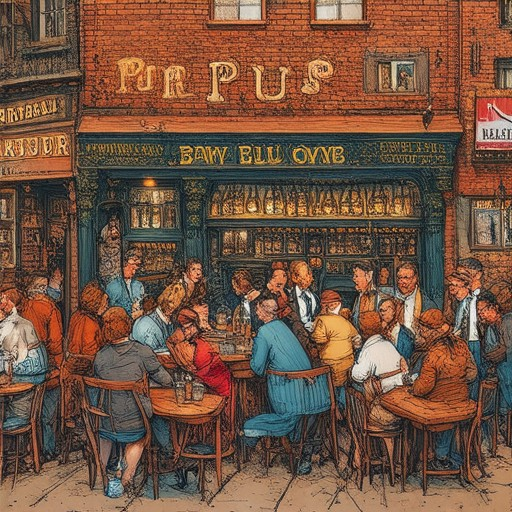
What does the acronym PUB stand for?
PUB stands for “Public House.”
A Public House is a type of establishment that has been around since the mid-19th century in the United Kingdom. These establishments typically serve alcohol and often provide food as well. They have become integral parts of many communities, serving as social hubs where people gather to relax, enjoy drinks, and sometimes play games like darts.
Over the years, pubs have evolved, with some offering a more diverse range of activities and amenities. Despite this evolution, many traditional pubs still maintain their old-world charm and continue to serve real ale and other beverages. Whether you’re looking for a cozy spot to unwind with friends or a lively atmosphere, there’s likely a pub that fits your needs.
Explore the rich history and cultural significance of pubs through Dufferin Arms , a blog dedicated to celebrating the legacy and charm of these iconic establishments.
What does the acronym PUBS stand for?
PUBS stands for:
- P – Puking (vomiting)
- U – Unresponsive (to pinching)
- B – Breathing difficulties
- S – Skin (cool and pale)
This acronym helps individuals recognize signs of alcohol overdose.
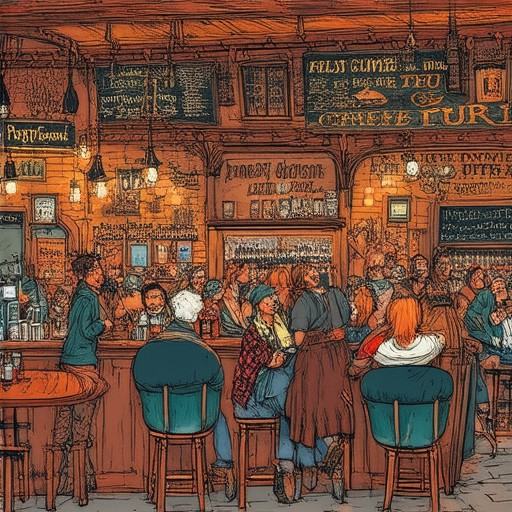
Pub Culture Explained
Pub culture refers to the social, historical, and communal aspects associated with pubs and their role in society. Pubs are more than just establishments to drink alcohol; they serve as vibrant social hubs, historical landmarks, and community gathering spots.
Key Components of Pub Culture:
- Social Gatherings :
Pubs are iconic for their role in facilitating social interactions. Whether it’s catching up with friends after work, celebrating birthdays, or enjoying a casual drink with neighbors, pubs provide a space for connection and camaraderie. - Historical Significance :
Pubs have deep-rooted histories, particularly in regions with rich brewing traditions like the UK and Ireland. They often reflect the cultural heritage of their locations, serving as reminders of past traditions and community values. - Diverse Offerings :
Beyond drinks, pubs offer a variety of experiences. Many host events like pub quizzes, live music, and themed nights, catering to diverse tastes and age groups. Food menus often accompany drinks, adding to the overall social experience. - Community Hubs :
Pubs frequently act as local hubs, contributing to the vibrancy of neighborhoods. They often host charity events, sports watch parties, and other community-driven initiatives, fostering a sense of belonging among regular patrons. - Cultural Icons :
Certain pubs gain fame for their unique beverages or historical significance. For example, specific breweries linked to pubs may become celebrated for their contributions to beer culture, further enriching pub culture. - Global Variations :
Pub culture adapts across different regions, with variations in decor, clientele, and ambiance. While some pubs are family-friendly, others cater to a younger, lively crowd, offering diverse vibes depending on location. - Seasonal Celebrations :
Festivals and events tied to pubs, like Oktoberfest or St. Patrick’s Day, bring people together, emphasizing the communal role of pubs in celebrating traditions and holidays. - Evolution Over Time :
Pubs have evolved with societal changes, adapting to shifts like prohibition and the rise of modern technologies. They continue to evolve, embracing innovations while retaining their core appeal. - Local Identity :
A local pub often becomes a symbol of identity, offering a sense of place and familiarity. Regulars may feel a strong connection to their “local,” contributing to its enduring popularity. - Technological Integration :
Despite competition from home entertainment, pubs have adapted by incorporating technology, such as online reservations and delivery services, to maintain their relevance and attract new customers.
In essence, pub culture is a dynamic blend of history, social interaction, and community spirit, making pubs more than just places to drink—they are cultural landmarks and social catalysts.

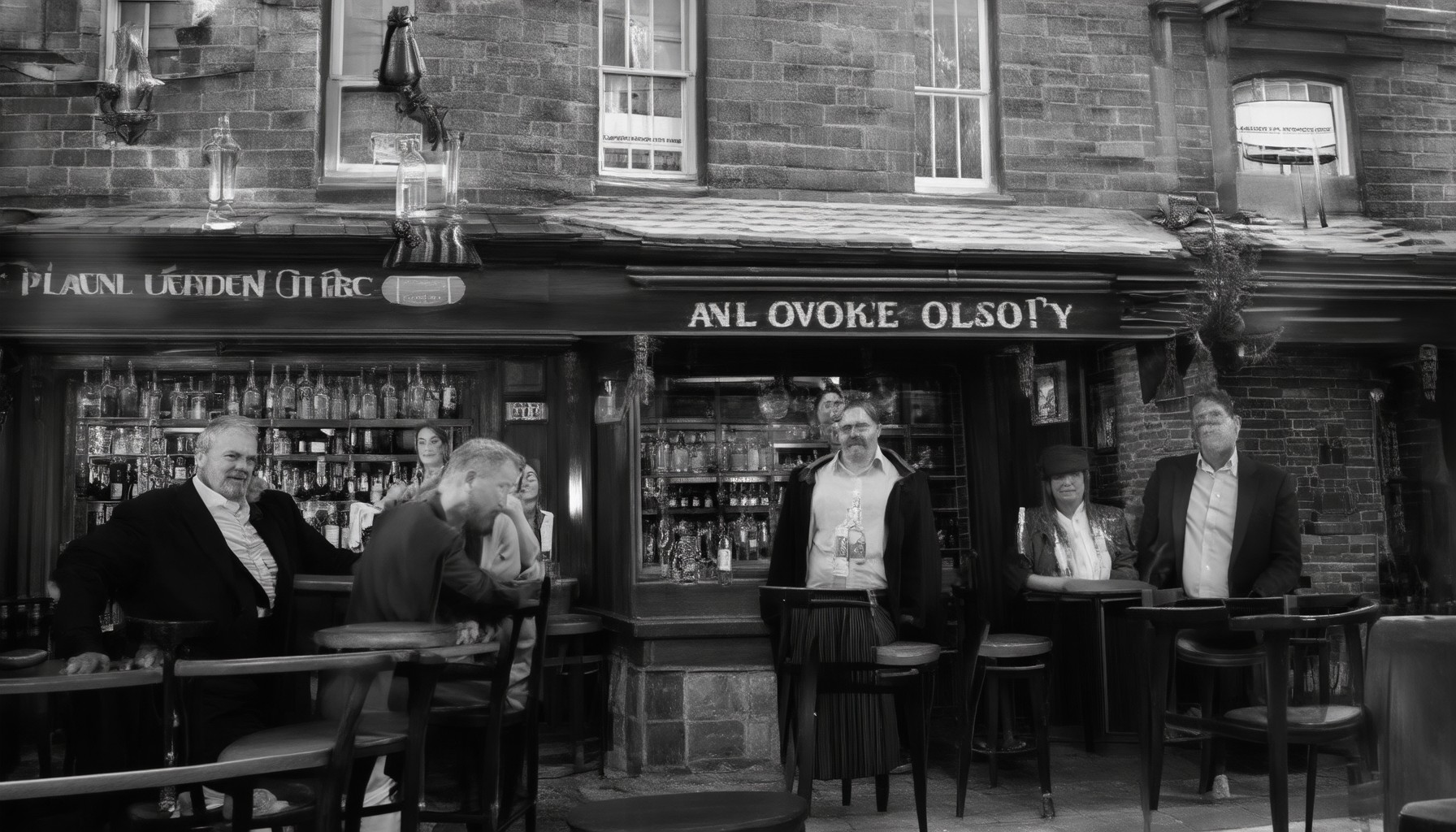
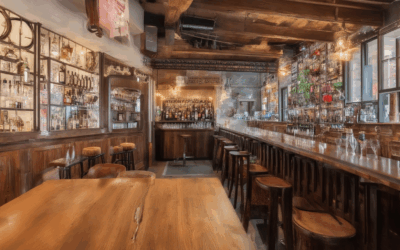
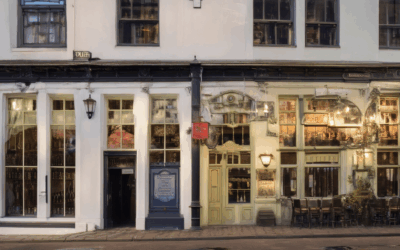
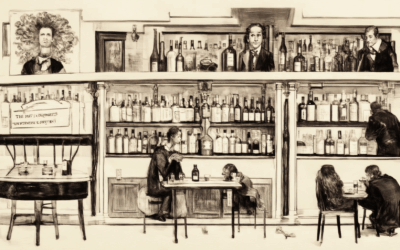
0 Comments